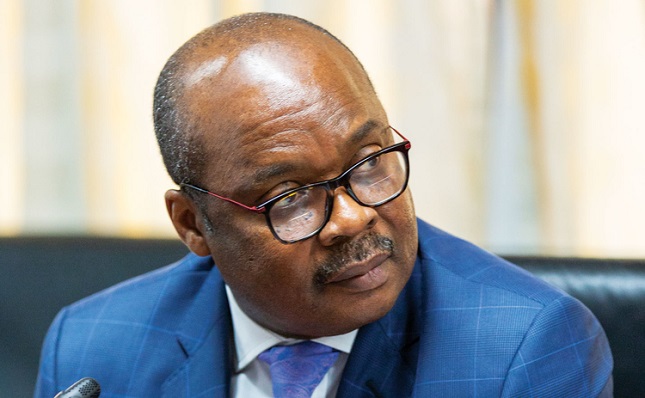No bank is on liquidity support – Governor Addison
- Posted on
- Comment

The Governor of the Bank of Ghana (BoG), Dr. Ernest Addison, has said that no bank is currently on liquidity support in Ghana although an intervention was made to support the banks.
Dr Addison indicated that all the banks have submitted their recapitalization plans. The Banking Supervision, after reviewing the plans, expressed satisfaction and found them credible.
Asked whether there are banks currently on liquidity support while speaking at the 115th Monetary Policy Committee (MPC) press conference in Accra on Monday, November 27, Dr Addison answered “There are no banks on liquidity support however, you know that we have some legacy institutions in the nonbank sector that are in a sense not able to meet depositor payment, these are legacy problems so as things normalize the rationale for these interventions may not be as strong as they were when you were in the middle of the crisis.
“This is why the Fund acknowledges that it was a good intervention but as the economy normalizes, the exchange rate stabilizes, and the markets function properly there will be probably a need for us to get out of that operation.
“All 23 banks have submitted their recapitalization plans, the Banking Supervision Department has reviewed all of these and we find them credible, and we are quite hopeful that within the next two years, most of the banks would have fully recapitalized and be able to meet the capital adequacy threshold without relief. They are meeting those thresholds with the regulatory reliefs but in the next two years, they will be able to make the capital adequacy ratio with any reliefs.”
Regarding te financial sector clean-up exercise, Dr Addison indicated that the central bank did not spend GHc25 billion to clean up only the banking sector.
He said that the amount was spent to clean up the entire financial sector covering banks, savings and loans, microfinance companies, and specialized deposit-taking financial institutions (SDI).
Answering questions at the 115th Monetary Policy Committee (MPC) press conference in Accra on Monday, November 27, he indicated that the cost involved in sanitizing the SDIs alone, for instance, is higher than doing that for the banks.
It is difficult to trace assets of the SDIs and sometimes the assets are not even available to trace them, but with banks, their assets are easily traceable, he argued.
The Bank of Ghana was criticized by some analysts for spending huge money to clean up the financial sector.
In the view of the critics, the BoG could have used the funds to rescue the banks rather than collapsing them.
But Dr Addison said “I hear statements like we spent so much money to clean up banks but you don’t compare apples with apples, because that GHc22billion or Ghc25billion that is quoted was not the amount spent to clean up banks alone. It was the amount spent to clean up banks, savings and loan institutions, microfinance institutions and institutions that were licensed by the Securities and Exchange Commission (SEC).
“That is the entire financial sector cleanup cost, so when people make that comparison they are not comparing apples with apples. In particular, because the SDI cleaning can be very expensive, with the banks we are able to recover assets, the receiver is working on recovering assets from the banks.
“The microfinance institutions, the savings and loan institutions that were shut down almost had no assets, you could not trace assets. Most of them had just dissipated depositors’ funds and you could not even find what those resources were used for. So cleaning up the SDI sector can even be more expensive to the budget than cleaning up the banks. If you will recollect, everybody got funds full, under normal circumstances that doesn’t happen anywhere. We have set up a deposit insurance arrangement that will make sure that you get some payment if your financial institution goes into distress, you know how much the deposit insurance will pay. In our recent history Ghanaians have been used to getting their deposit refunded fully, which makes it very expensive to the budget.
“So yes, the legacy problems, we are very much aware of them we have to find the resources to be able to complete the work.”
-3news






 (Selorm) |
(Selorm) |  (Nana Kwesi)
(Nana Kwesi)